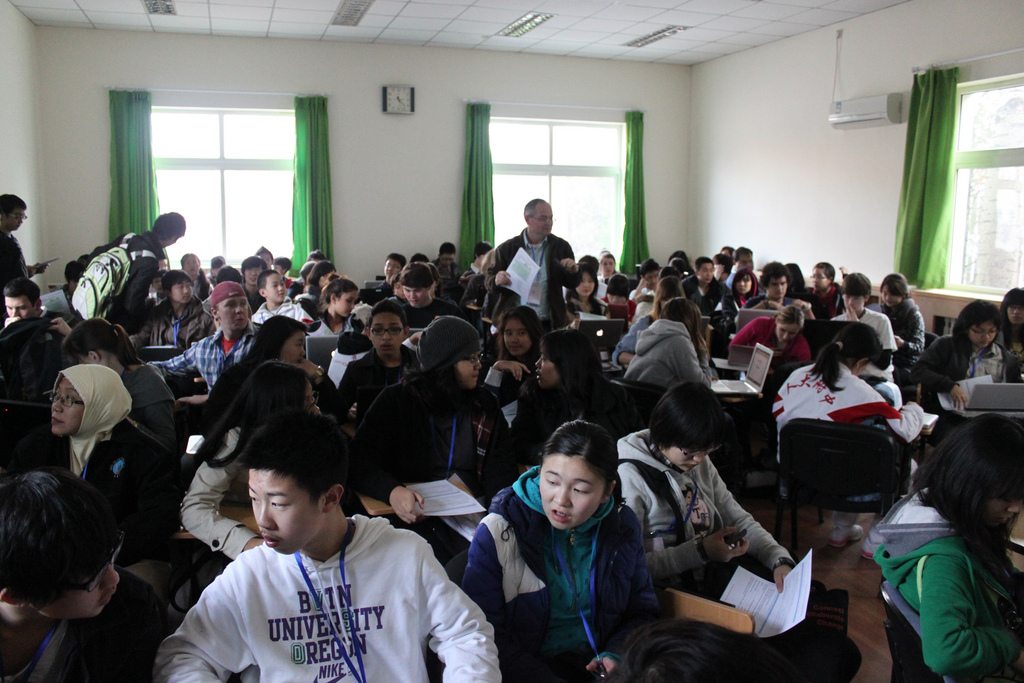Global Student Stories – 26 November 2015
This week’s Global Student Stories take us to the US, Egypt, China and South Korea, where Hattie Rowan deals with the formation of student unions and the fight against homophobia.
USA: ‘White Student Unions’ Formed
White Student Unions (WSU) have recently been created in over 30 campuses in the country, including universities like Stanford, Missouri and UC Berkeley.
However, the universities have released statements proving they are not affiliated with the student unions.
A spokesman of the WSU at UT Austin explained that the group wants to “promote the ethnic interests of white students”. He added that some feel they are “drowning in anti-white narrative.”
There has been speculation as to who has been creating these unions.
Andrew Anglin, editor of white-supremacist website The Daily Stormer, asked the public to create these groups. However, such claims have been denied by the UT Austin WSU.
They are also a backlash movement against recent protests, most notably Yale and Missouri.
Many students believe the White Student Unions are meant to belittle the Black Lives Matter movement. The WSU at University of Illinois even labelled it as “terrorism”.
Facebook has recently removed UC Berkeley’s White Student Union page as it was proved to be a hoax, leading people to believe that others in the country follow the same pattern.
South Korea: Student President is revealed to be gay
23-year-old Kim Bomi’s election as president of the student body at Seoul National University (SNU) has made front-page news of South Korea’s national newspapers.
However, this is due to Kim’s sexuality rather than anything else.
Kim commented that she hopes “people love themselves for who they are and live with confidence in this world,” she added; ‘So I am telling you here that I am a lesbian.”
She has 86.8% of voters’ approval.
The younger generation have demonstrated complete indifference to her homosexuality as senior student Park Hanjin stated; “These days many of my friends don’t care about gender.”
However, her comment shocked the country’s older generation. 76-year-old Lee Nam Bok stated that she doesn’t “understand young people these days”.
An army veteran took the more extreme view that Kim should be expelled and that “[they] are not standing up against [their] enemies to protect her.”
The reaction to Kim’s election has demonstrated the large gap in opinion between South Korea’s conservative aging population and the much more liberal younger generation.
In 2013, a research showed that only 39% of South Koreans agreed that their society should be more of accepting of LGBT people.
China: Student finds homophobia in textbooks
20-year-old college student Qiu Bai was outraged when she came across homosexuality being described as a “disorder” that could be “cured” in some Chinese textbooks.
Qiu, a pseudonym, sent a letter to China’s Ministry of Education about the issue. When they did not reply, she filed suit hoping to ban homophobic language in state-published books.
Qiu said; “I have been fighting to make our voices heard for such a long time, and I finally have the opportunity.”
Her lawsuit is another step in the fight to make China’s courts promote LGBT rights.
Her lawyer, Xin Ying, described it as a possible “milestone case in the history of the gay right’s movement.”
Now the ministry is finally paying attention to the problem.
Wei Tingting, one of China’s five feminists detained last year, commented that “because textbooks are seen as having authority, everyone, including the students, the teachers and the parents, believes them.”
Stigma and homophobia still exist in China even 25 years after the decriminalisation of gay sex.
Egypt: Student Unions resumed after two-year standby
Egyptian universities have begun their first Student Union (SU) elections since 2013 in time for International Students’ Day.
They were held in Cairo, Ain Shams and Al-Azhar Universities.
The elections have been suspended for two years due to the political turmoil which has been unfolding in Egypt.
It began with the downfall of the Muslim Brotherhood and the dismissal of President Mohamed Morsi.
This turmoil halted any possibility of students carrying out political activity on campus.
However, the International Development Centre’s executive director, Mohamed Adel, stated that “the more repressed rebellious students are in universities, the more they seek external opportunities and the more there is violence.”
Another reason for the cease of SU elections is the conflict between students and administrations concerning student executive regulations.
Adel believes that, despite the elections, student activity will still be restricted to expressing only those political opinions which are in cohesion with the administration’s own views.
However, the student turnout was under 15%, possibly due to midterms.
Nonetheless, the elections are a step forward for Egyptian students.

Comments